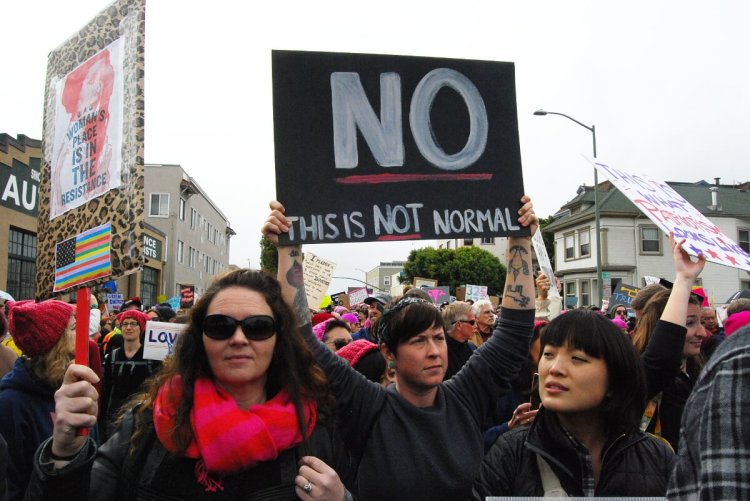Watch all the Transform 2020 sessions on-demand here.
Lynn Fischer has made Facebook Messenger bots for the Women’s March on Washington and Pope Francis, as well as HillYeah, a voter engagement bot deployed during the 2016 election.
Now her company Sorted.ai plans to apply the lessons learned from those projects to deploy bots to help progressive political candidates win local, state, or congressional elections in 2018.
In the weeks to come, HillYeah will relaunch as WeCause, and will be revamped to turn its attention toward connecting voters to the causes they want to support most.
Issues > Candidates
Bots on Messenger first entered politics during the 2016 presidential election. The idea for HillYeah was born out of a brainstorming session with other Hillary for America volunteers. In a matter of days the bot Fischer calls “a Get Out The Vote campaign in a Messenger bot” went from idea to product release.
June 5th: The AI Audit in NYC
Join us next week in NYC to engage with top executive leaders, delving into strategies for auditing AI models to ensure fairness, optimal performance, and ethical compliance across diverse organizations. Secure your attendance for this exclusive invite-only event.
“To engage young voters, we really took a page from Obama’s playbook,” Fischer said. “Their research showed that if someone commits to vote, whether … it’s a card, someone coming to your door, or some digital kind of hand raising, if you commit to vote, you’re twice as likely to come to the polls.”
From late summer to Election Day, HillYeah received commitments from 75,000 millennial swing state voters. Once people registered to vote, the bot was used to facilitate connections between human Clinton supporters to encourage those who committed to vote to make it to their local polling station.
Clinton’s campaign ultimately failed, but Fischer believes that the reimagined bot and others like can help mobilize voters in the years to come. In addition to WeCause, in 2018 bots derived from HillYeah will be put to work for progressive candidates — not necessarily by talking about the candidate, but rather by talking about what voters want.
“Tuning in on issues, we found, was more effective than speaking about the candidate, and I think that will continue to be the case in midterm elections,” Fischer said. “As midterm elections come near, WeCause will look to partner with other organizations to provide information on candidates and their support of specific causes. We will look to provide information on candidate regardless of party but based on cause.”
In addition to gathering commitments from voters, the next version of HillYeah will enable signing up volunteers and raising funds. It will also be used as a one-to-many broadcasting tool. Segmentation of voting blocs means that voters will receive different messages based on their answers to questions or interaction levels with a bot.
Paid targeted advertising will also be part of the strategy. Last year HillYeah was an early adopter of Facebook Messenger’s beta program to advertise bots directly in a user’s News Feed. Click the ad and you’re taken directly to a Messenger bot. The free, organic approach to sharing bots inside Messenger is important, Fischer said, but user acquisition was found to be strongest with Messenger ads.
“We had paid media across Facebook, Instagram, and Twitter and found Messenger destination ads the most effective,” she said.
Bots on the march
HillYeah was one of several bots that entered the political fray during the 2016 election. Backed in part by the anti-Trump Twilio, HelloVote helped people register to vote in less than two minutes and find local polling places.
BFF Trump was made by SS+K, a consultancy known for creating the modern logo of the Democratic Party. Even the Hillary for America campaign made bots, one that helps you register to vote and another that texts you offensive things President Trump has said about Muslims, Mexicans, women, the disabled, and other topics.
Beyond issues-based bots, Sorted.ai plans to “take our learnings from the civic engagement side and apply that to commercial brands.”
Based in New York, Sorted.ai was created in June 2016 and has five employees.


